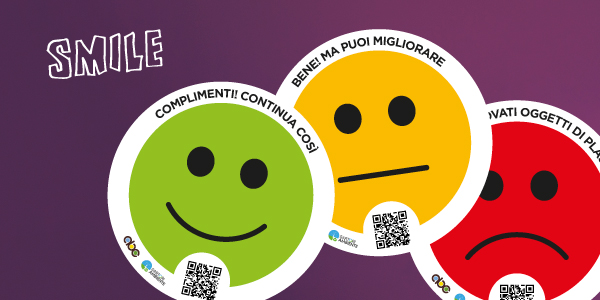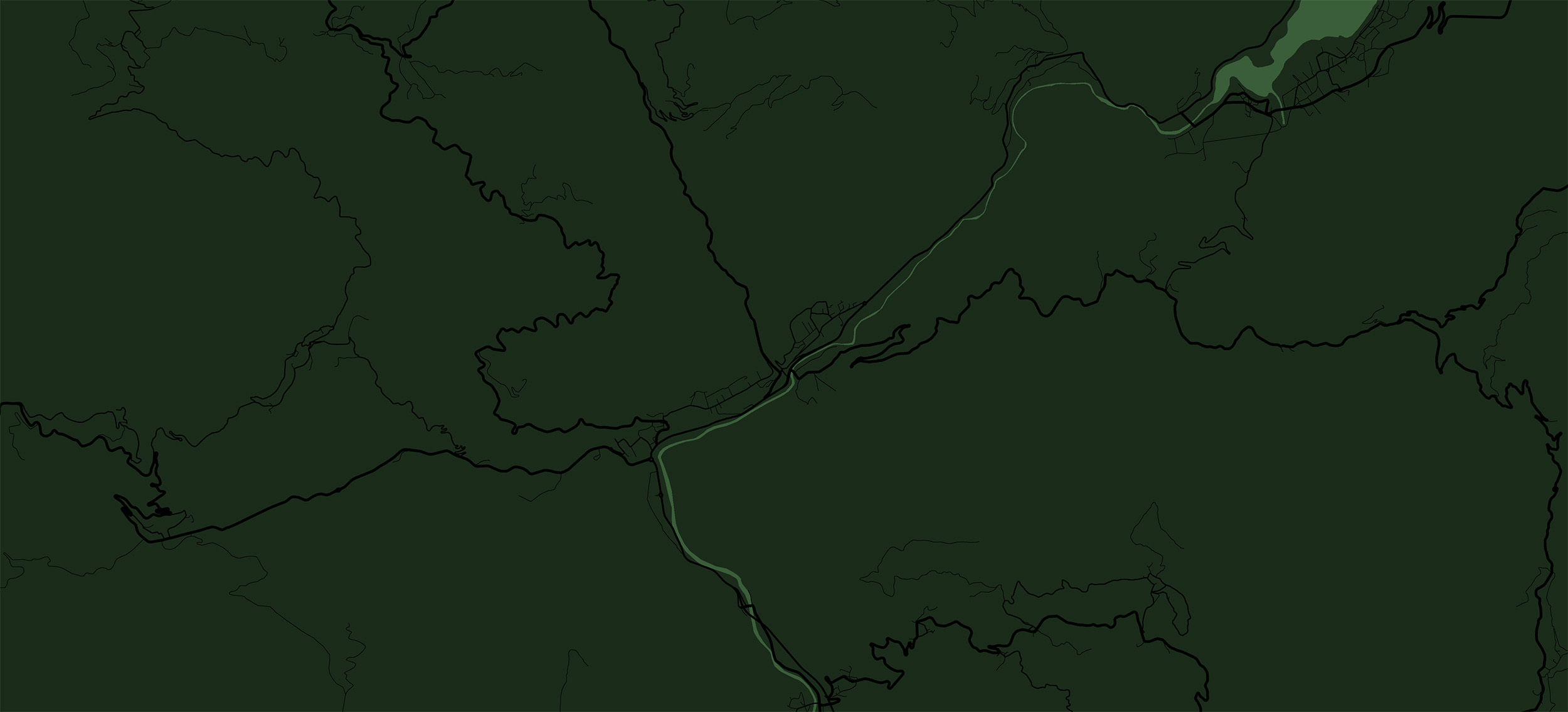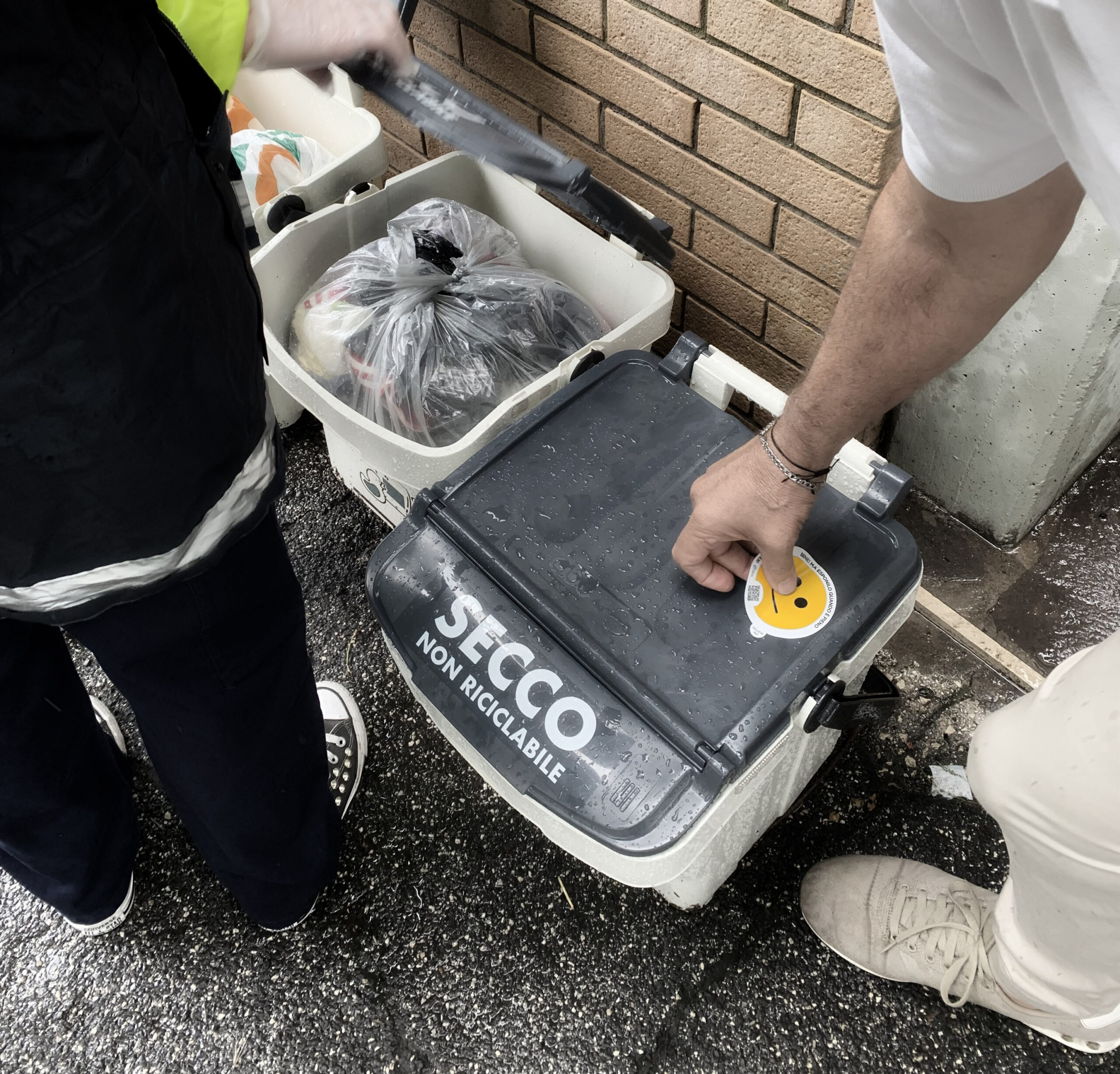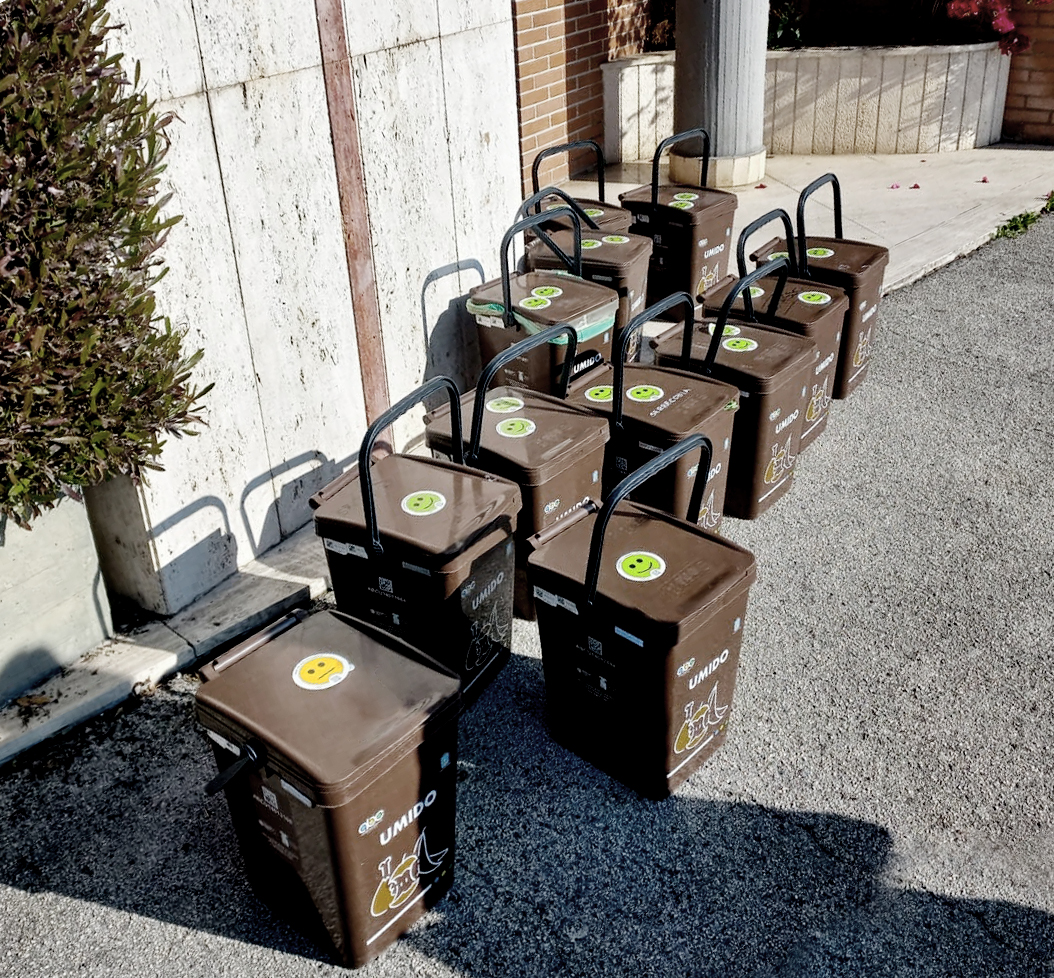Nudge theory applied to the world of waste
In 2023, we were pioneers of a true example of a “nudge” project applied to the world of waste, and the results were extremely interesting.

The initiative, carried out in collaboration with the University of Trento, involved the Municipality of Latina and ABC Latina, the local waste collection utility.

Technical notes
We made a few technical choices in order to obtain analytical data:
- Product analyses before and after the project implementation
- Selection of two similar city districts: a pilot area and a test area
- Digitisation of the collected data
Objectives
The goal of the project was to improve the separate waste collection carried out by citizens, and help them create virtuous habits.
This approach is called “Nudge theory”, or gentle push.
The aim is to guide people towards positive behaviours without any obligation.
Project
Step 1
In the first step we carried out an analysis of citizens’ needs, using a survey conducted within the Junker’s app.
The goal of this survey – these are the words of Federica Stablum- is to shift our focus back to citizens and their needs. Products and services are often created without referring to those who will actually use them every day. We believe it is important to understand what drives people to do separate collection, and to figure out what we are doing well and what we can still improve”.
The survey contained several questions, and to “What would you consider useful to improve your separate waste collection?” the 30% of participants answered “Having feedback about how recycle” would be a useful strategy.
Step 2
In order to try and meet the request for a feedback on separate waste collection, the project included “smileys”: these coloured stickers provided feedback on how users recycle.
The relevant explanation was provided through the QR code: each message was linked to a specific page that supported users in understanding the change to be made.
This also allowed us to verify if citizens actually used the system.
Step 3
ABC Latina staff played an extremely important role. Their tasks were:
- Checking the contents of containers
- Applying the sticker
- Reading the RFID TAGs, through the ArcoBEAT portable reader
- Recording, on ArcoBEAT, the type of applied sticker
These steps were necessary to create an information database, and subsequently assess the effects of the process seen on the basis of the changes of users.
Results
The project was developed over a period of about six months, in which we carried out product analyses, staff preparation and field monitoring, for a total of 43 days of information checks and 2,607 data records.
Data processing has allowed us to bring out those several users who corrected their mistakes, autonomously and with satisfaction.
With the 1,302 applied smiles, the territory of Latina and the districts covered by the case study consolidate the data of separate collection with
- an increase in the amount of the organic fraction
- a reduction in the amount of plastic and metal packagingwithin the residual waste fraction
As a further result, we helped citizens understand that residual waste containers are to be taken out only when full; users were extremely proactive, thus allowing ABC Latina to reduce collection on the territory.
Concrete results obtained with a smile.

